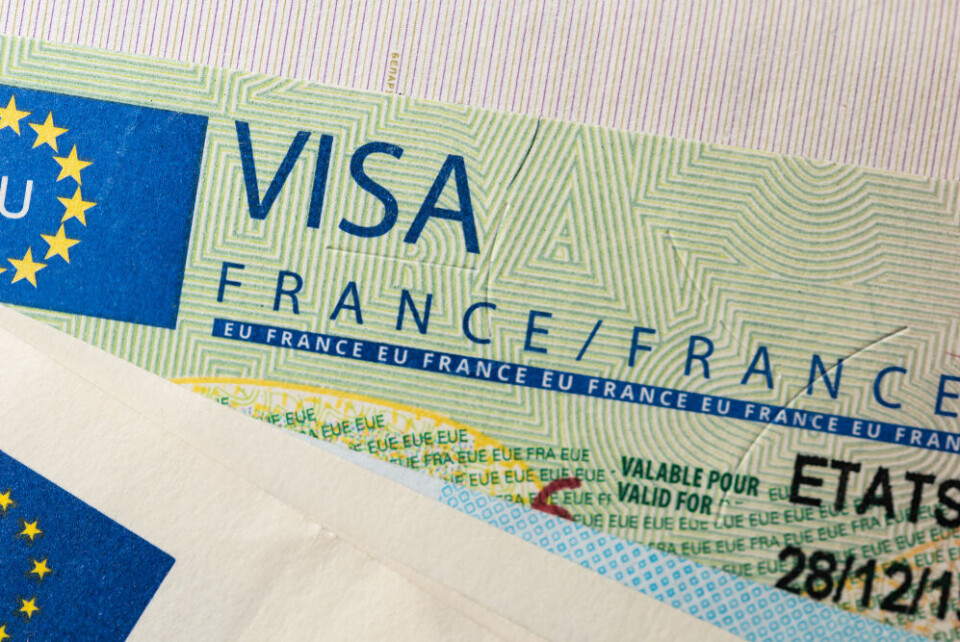-
90/180 days rule: Can visa-free days be used to enter France before start of visa?
Be wary of spending too much time in France or you may be seen as a tax resident
-
French interior minister wants to toughen rules for gaining citizenship
Applicants ‘must meet a certain number of conditions’ he said
-
Obligatory language tests for French residency: Differences between TEF and TCF
We speak to an official language assessment centre about why candidates may prefer the more modern and flexible TEF exam
Do I have to wait six months after expiry to renew French VLS-T visa?
VLS-T visas are separate to Schengen Bloc visa-free access days

Reader Question: I know I need a six-month VLS-T visa to spend the summer at my second-home in France, but can I get these back to back? If not, can I use my ‘90 days’ to stay longer at my home past the VLS-T visa expiry date?
Britons looking to visit France for longer than three months (and up to six months) will need to apply for a visa de long-séjour temporaire (VLS-T).
These visas must be applied for via the France-Visas website, after which you need to book an appointment with the appropriate visa service (for the UK this is TLSContact).
VLS-T visas are mostly used by second home owners to visit and stay at properties in France for up to half the year but can also be used by some students, as well, for example, as those visiting France for certain creative purposes (such as musicians).
The period the visa allows holders to remain in France – typically six months – is longer than their rights under the 90/180 days Schengen visa-free access rule.
Those wishing to remain in France permanently will need a different type of visa, for example a VLS-TS.
Read more: Explainer: Common visa options for visiting and moving to France
A wait is required between visas
There is a waiting period between the end of one VLS-T visa and the start of another.
Officials previously told us this equates to six months from the end of the validity of one visa and the start of a new visa period (a reader recently reported being told by TLSContact it would be a period of 180 days, which is roughly equivalent).
This would mean that, for example, you can spend six months in France, then six months away, then return at roughly the same time the next year. So no, you cannot obtain back to back VLS-T visas.
However note this relates to the date on which you will go to France under the new visa and is not the date when an application for a new visa can be made.
Applications can be made up to 90 days before the requested start date of the next VLS-T visa, so you can plan to ensure your visas start at roughly the same time each year.
It is advised to apply for your visas as soon as you know the dates you wish to go, as sometimes it can take up to two months for an appointment during particularly busy periods.
It takes around 15 working days for your visa to be processed after your appointment.
Each visa application is a one-off activity, meaning the same process must be followed for each subsequent request.
There is no ‘fast-track’ way for previous visa owners to obtain their next one.
Read more: How long to get a visa for France, what is cost for a courier service?
Can I use my 90-day access after my visa ends?
VLS-T holders keep their visa-free access rights to EU countries, with time spent in France on the visa not contributing to days spent in the Schengen area under the 90/180 day rule.
The French border police has previously stated to The Connexion that days under the 90/180 days rule can be used shortly before a visa starts, or to remain in France once a visa has expired, for an additional amount of time. They said if doing so, it is advisable to keep evidence of your movements such as train or flight tickets and, if asked at the border, to explain why you have in fact completed a ‘short stay’ in French following your ‘long-stay’ visa.
Having said this, one expert working to help non-EU citizens with visas has told us it is preferable to leave within the visa to avoid any confusion over the rules.
In theory then, it is not an issue, but in practice, it may be better to stick to your visa period. It is also worth noting that if you spend more time in France than in your ‘home’ country in any given year, France may consider that you have become a tax resident of France.
Related articles
How does EU's 90/180-day rule work when visiting France?
Can I delay the start date of my one-year French visa?
























